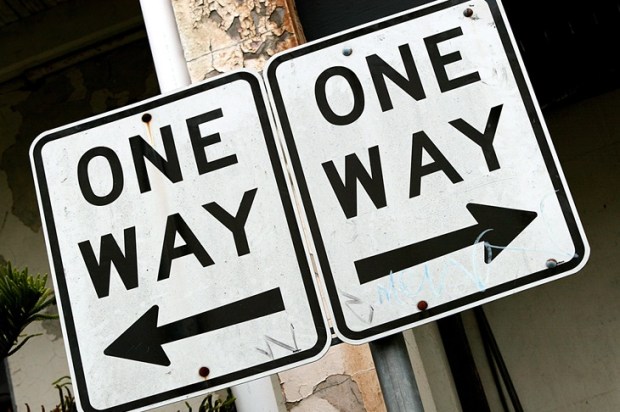Covid-19 vaccine mandates and passports are a bad idea.
I don’t want to suggest that they are unconstitutional, or unethical, or anything like that. Those sort of generalised arguments are usually wrong. “The government doesn’t have a right to tell me what to do with my own body…” Except when it does, e.g. banning drugs and underage sex. “I don’t have to tell anyone my personal information…” Except when you do, like declaring you have HIV before giving blood. “I have a right to decide what goes into my body…” Except when the authorities sedate you because you’re having a psychotic episode on a bus.
Here’s a hard rule: if you can think of an exception, then you aren’t describing a hard rule. The “my body, my choice” guys are looking a bit stupid when they support vaccine mandates, and us pro-lifers will look equally hypocritical if we should oppose it for the same reason.
These are all wisdom issues; they are principles and ideas that we have to apply to the specific situation at hand and judge it on its merits. So let’s stop talking about highfaluting notions of liberty, equality, fraternity or whatever other “ity” floats your boat today, and talk about the merits of this vaccine.
The government has a simple overall objective with regards to the pandemic: minimising harm. We need to ask, then, what is the extent of harm in a world that has vaccination-based rules, versus one that doesn’t?
Upfront we can notice something very important: these vaccines seem to only benefit the vaccinated. There are plenty of documented cases of vaccinated people spreading the virus. They also appear to wear off. This was apparently predictable from scientific fundamentals, as shown by this Twitter thread from November last year, just after the first Vaccines were announced.
The first policy idea to consider is forcing people to take the vaccine. The rationale for this: it forces someone to reduce their chances of getting sick. For some period of time, this reduces their chance of dying (good for them) and in a severe outbreak, it reduces the chances of overloading the healthcare system (good for everyone).
Based on evidence from overseas, forcing everyone to take the vaccine would result in increased population resistance to the virus for about six months. Maybe, if we have a severe outbreak within that six months, that outbreak will be less deadly and provide something approaching herd immunity going forward. Based on Israel, we could expect maybe a halving of the fatality rate, or worse the longer we wait and depending on what variant we have. Israel, like us, has low prior infection rates (about one in eight, still higher than us) and high vaccination rates (about 70%, also higher than us), and currently has a delta-variant outbreak with a fatality rate I’ve estimated at about 0.4%, compared to their former rate of about 0.7% (which was already quite low, perhaps indicative of good testing rates). Now they’re rolling out booster shots.
But no one is suggesting that forced vaccination be done.
The cost is not worth the limited and fading harm reduction from a vaccine that wears off. It would certainly be a logistical nightmare, well outside the government’s actual capacity to implement.
It would lead to a severe civil revolt—it’s like trying to feed a child by grabbing their face and shoving a spoon in their mouth, instead of pretending it’s an aeroplane; they’re going to squirm and flail and spit it right back at you.
The government would become culpable for any consequences. The handful of people whose relatives die from the vaccine, or if it turned out to impact their pregnancies, can rightly blame the government for forcing them to take it. Any children adversely affected could blame the government for doing something that they didn’t even really need, as could anyone who had prior immunity due to recovering from the virus.
History also suggests this is a bad approach to governing. Governments and citizens are both adults and both mere fallible humans—it’s a good policy to defer to individual judgement and only restrict it when the justification is strong; to do otherwise is a slippery slope towards other overbearing policies. The road to totalitarianism is paved with golden bricks saying “this is for your own good”.
Instead, a rational balance is reached. We give people freedom of choice whether they get the vaccine or not. The good thing is, we can achieve most of the best outcome if we just vaccinate those who want to be vaccinated. The most vulnerable, the old and those with comorbidities are also the most likely to get the vaccine because they know what they are seeking protection from and how dangerous it is to them. If you vaccinate them more frequently—like, every three months—then perhaps you can maintain for them the best viral resistance that is currently on offer. And if you make it easy to get, such as doing vaccine drives in nursing homes and malls and routine GP appointments, then it’s not even inconvenient.
Having decided that we will not force people to get the vaccine, the second option is to prevent unvaccinated people from doing a range of activities. Preventing them from attending pubs and parties, from getting on planes, from visiting nursing homes. Even from going to work. This is being seriously considered all around the world, like in President Biden’s latest incendiary announcement, curiously given the day before the 20th anniversary of 9/11 (nice try, but we’re not distracted from your Afghanistan bungle, dude).
This is what I think makes no sense whatsoever. We currently have a full lockdown in two Australian cities and the virus is spreading anyway. If that is the effectiveness of the tightest lockdown you can practically achieve, why would we expect any sort of partial lockdown to be effective at all?
It makes even less sense if the decision is left to individual venues. If multiple pubs refuse to permit unvaccinated people, then all the unvaxed have to go to the few pubs that permit them – that puts them all in the same place together. It’s like making all the unvaccinated children go to the same few childcare centres, hence creating the optimal conditions for them to share whooping cough and measles with one another; it’s insane, they’re safer if they’re distributed! So, for a conventional vaccine, this would only make things worse. But honestly for the Covid-19 vaccine, it just doesn’t do anything. Because vaccinated people can still spread the virus.
It is not possible to lock down the unvaccinated sufficiently that they won’t get the virus if there’s an outbreak being spread by the merry, party-going vaccinated. The unvaxed are still going to go to the shops. They’re still going to have contact with their housemates, relatives, and neighbours. It appears mathematically untenable to think it will achieve anything at all. What am I missing?
No one has explained, logically, how there is any incremental benefit from a vaccine passport and these vaccine rules. Unless… unless the point of the rules is to punish the unvaccinated through inconvenience. Maybe that’s it. The government can’t actively fine them or imprison them or beat them with sticks – having given them choice you can’t punish them for their choice. Instead, you’ve got to manipulate them. “You can’t have dessert if you don’t eat all your supper.”
This is just like forcing us. It’s really a vaccine mandate in disguise. But it’s worse – at least a mandate is honest; this is manipulative. I’ve disagreed with plenty of policies over the last year or two, but the most offensive politics I’ve seen is when the government has deployed citizens as its agents. When they’ve asked people to “dob” on their neighbours. Now they’re encouraging citizens to judge and punish their neighbours in another way, for no benefit.
Again, I’m not saying this is a “hard rule”. Of course, citizens should report one another in some situations; like when they witness crimes. But this issue of pandemic response is not so clear-cut; at best, the response measures like masks and elbow-bumping work statistically. They’re also abnormal and unhabituated behaviours, they are antisocial and difficult to follow, some of them haven’t made a whole lot of sense, and some of them really don’t do anything. It is very unwise of the government to divide the population over this! More than any other action, this is playing with fire; the tones of communism are ringing loudly. In a democracy, the people should not be assessing who is for or against the government, but assessing whether their government is for or against the people.
Encouraging businesses to make vaccine-based rules is more bad and divisive policy. Given the properties of the vaccine, the government’s message should be: “don’t worry about the decisions of the people around you, they have their own decision to make and they aren’t a threat to you. You just need to decide when, where and, for that matter, if you are going to get vaccinated for your own protection.” It’s not that hard.
I can think of situations where mandatory vaccines might be justified. If this virus were a lot deadlier than it is and we had a vaccine that was more effective than this is, I’d consider mandating it. I’ve been supportive of requiring vaccines for nurses at aged-care clinics and certainly for those who work with immuno-compromised patients. I’d support vaccines for soldiers in war when the country can’t afford for half their army to get sick. I’m supportive of vaccines for travellers against viruses that we are keeping out of the country. But for this virus, and these vaccines?
On the merits – it just doesn’t make sense.
Got something to add? Join the discussion and comment below.
Get 10 issues for just $10
Subscribe to The Spectator Australia today for the next 10 magazine issues, plus full online access, for just $10.

























Comments
Don't miss out
Join the conversation with other Spectator Australia readers. Subscribe to leave a comment.
SUBSCRIBEAlready a subscriber? Log in